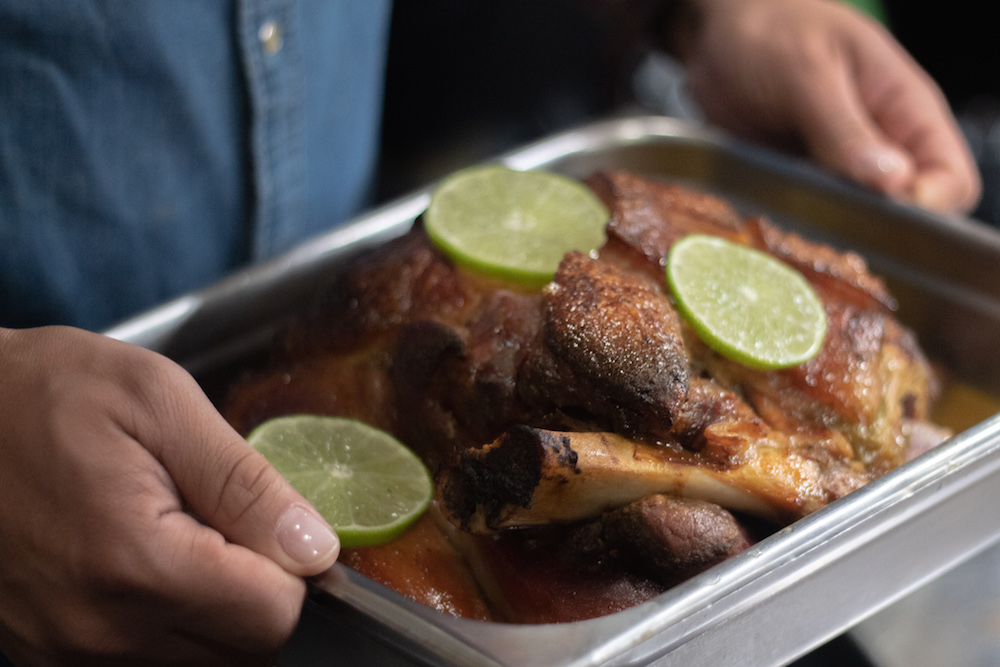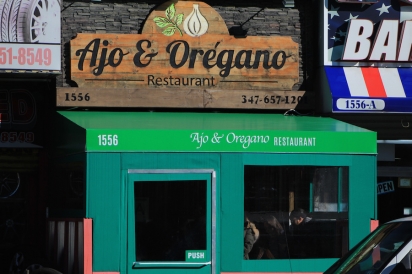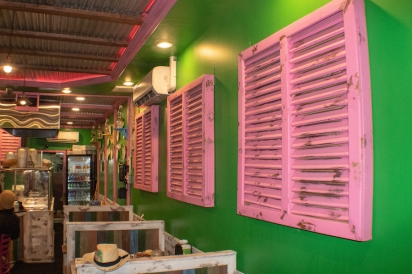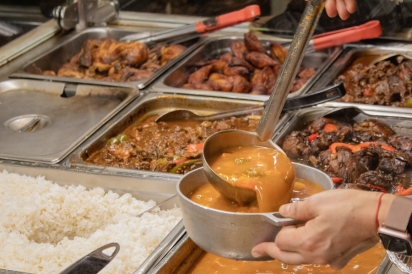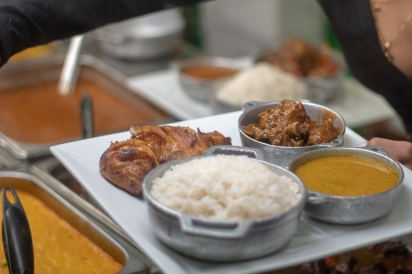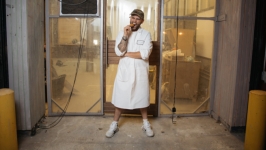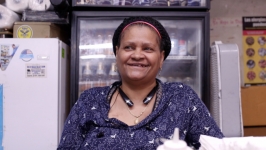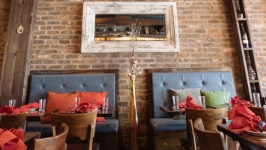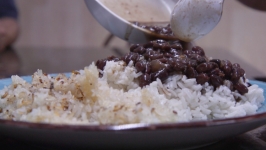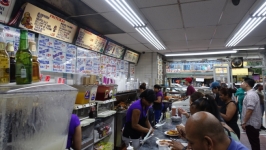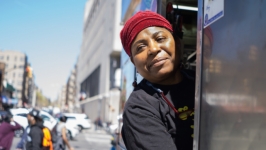Ajo y Oregano Found The Secret Ingredient to Success With A Family Business
Like many Dominicans who moved to New York City from their native country, Enver Perez and his brothers, Jeudy and Freddy, spent their summers back home with family in the Dominican Republic. It was during this time that they were exposed to the inspiration that would become Ajo y Oregano—a colorful, quaint restaurant tucked between a barbershop and a tire shop on White Plains Road in the Parkchester section of the Bronx.
Walking into Ajo y Oregano is like stepping inside the living room of your cousin’s casa de campo, a colorful countryside home. The interior is green with rustic pink window shutters—the idea for this specific color scheme came from an old photograph of his grandmother’s house—and hung high on the walls are the kinds of tableware that your parents only allowed you to touch when important guests were coming over. The bill is brought in a colorful shoeshine box, while salsa and merengue harmonizes with the Spanish slang echoing throughout the small room.
Enver is not the owner of Ajo y Oregano, at least not according to him. “This is a family business and restaurant, and [it] is owned by everyone who works here,” he explains. It’s a family restaurant in every sense of the word. The recipes and seasoning blends came from his late grandmother, and all of the employees are either family or have become family. Not family in the way Dominicans consider everyone they’ve ever met a cousin, but, like, real family. His two brothers and mother, Maritza Reynoso, manage the floor while his two aunts, Jackeline, and Milquella Reynoso, help run the kitchen.
The customers are considered family, too. The staff is known to bring out trays of yaniqueque, a Dominican twist on a johnnycake, for patrons braving the long lunch wait—much like an aunt would bring out baked goods to help hold you over until dinner. One guest even brings back bottles of Dominican ketchup for the restaurant to use whenever she visits the island.
Enver and his family have been sharing their food with friends for as long as he can remember. Friends would end up at his house for every family gathering but he never really understood why. “I just assumed everyone’s mom cooked good food,” he remembers. “It was a regular thing for me and that’s why I never thought of doing a Dominican restaurant. It turns out my mom cooked a little better and everyone really enjoyed my family’s food.”
The main cooking duties are split between his two aunts who run the daily menu and longtime friend Yudelkys Paniagua, who is in charge of the à la carte menu. The three opt to blend their own seasonings the way his grandmother did instead of using processed powder. “Dominican food isn’t the healthiest,” admits Enver. “But if we’re going to have it, let’s cook the same way we cook in our own homes. This is as if someone who cared about you cooked for you.”
The à la carte menu includes popular dishes such as chimi sliders, a scaled-down take on a Dominican street hamburger, which uses tostones as a bun with a perfectly seasoned beef patty, a layer of soft fried cheese, shredded cabbage and a slice of tomato all dressed in a mayo-ketchup sauce; and the mofonguitos, a mini—but still just as delicious—version of the popular mashed-up plantains dish.
The steam table in the back rotates the daily specials. Juicy chunks of rabo encendido (oxtail stew), tender chivo (goat) that slides off the bone, and crispy pica pollo (Dominican-style fried chicken) cooked the old-school way in calderos (large aluminum pots that can be found in most Hispanic kitchens). Taking it a step further, the dishes are served in mini calderos, which has garnered the restaurant some buzz on social media.
“We’re not trying to be rich,” says Enver about the restaurant’s recent success. “As long I’m able to provide a workspace for my family ... that’s something I take pride in. What I wanted to do was make a place for my friends and my family to hang out, but it’s funny because now my friends can’t even get in because it’s so busy.”
With a second location just weeks away from opening, and a new menu, which will include hard-to-find Dominican delicacies such as chambre, a hearty legumes and meat stew, and patimongo, a combination of two traditional foods, patica (beef or pork feet) and mondongo (tripe). A bigger space also means more staff to employ but that shouldn’t be a problem.
“I have enough family members to go around,” says Enver. “Six of them just arrived from the Dominican Republic to come help out.”
556 White Plains Rd, Bronx, New York


